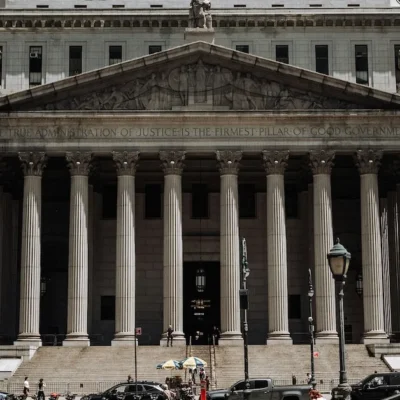
No matter how inventive artificial intelligence may turn out to be, it won’t be able to claim ownership on any of its ideas.
On Tuesday, the U.S. Patent and Trademark Office (USPTO) announced guidance rules on the use of AI in inventions, saying a human (or, as the government called them “a natural person”) was required to make “a significant contribution” to any new invention that could be considered for a patent. And only the human name would appear on that patent.
“Applications and patents must not list any entity that is not a natural person as an inventor or joint inventor, even if an AI system may have been instrumental in the creation of the claimed invention,” the USPTO wrote. “This position is supported by the statutes, court decisions, and numerous policy considerations.”
The guidelines offer scenarios where the use of AI can and can’t be eligible for a patent—and specifically note that the use of an AI system in creating an invention doesn’t rule out the chances of a patent. But if you depend too heavily on the technology, that’s where things get sticky.
“Merely recognizing a problem or having a general goal or research plan to pursue does not rise to the level of conception,” reads the guideline. “A natural person who only presents a problem to an AI system may not be a proper inventor or joint inventor of an invention identified from the output of the AI system.”
And what if the AI system that comes up with an idea is one the inventor owns or oversees? Nope. That doesn’t mean they’re able to patent any ideas that come from it.
The guidelines come as the Biden administration seeks to establish rules and regulations surrounding the use of AI. Last October, the White House issued an executive order that reaffirmed its commitment to regulating A and addressing several issues, including worker displacement, nefarious use cases, and the potential for AI to exacerbate discrimination.
They also follow a U.K. case last December where that country’s Supreme Court ruled that only people can invent things—and AI inventions are not eligible for patents.




